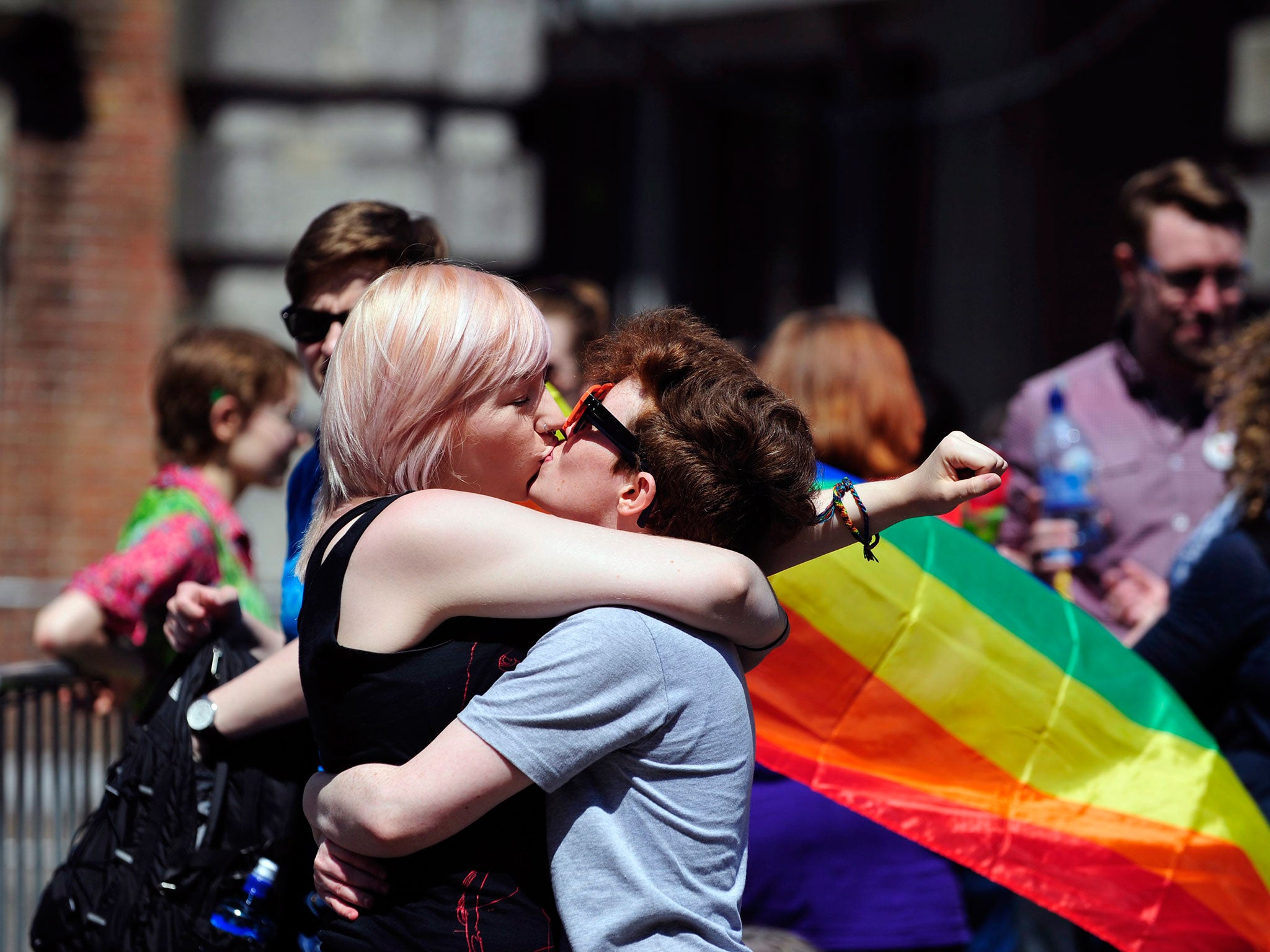Don't be blinded by the Yes vote: Ireland is still oppressing its LGBT population
Equal marriage is too often conflated with absolute LGBT equality but the reality continues to be alarming


Your support helps us to tell the story
From reproductive rights to climate change to Big Tech, The Independent is on the ground when the story is developing. Whether it's investigating the financials of Elon Musk's pro-Trump PAC or producing our latest documentary, 'The A Word', which shines a light on the American women fighting for reproductive rights, we know how important it is to parse out the facts from the messaging.
At such a critical moment in US history, we need reporters on the ground. Your donation allows us to keep sending journalists to speak to both sides of the story.
The Independent is trusted by Americans across the entire political spectrum. And unlike many other quality news outlets, we choose not to lock Americans out of our reporting and analysis with paywalls. We believe quality journalism should be available to everyone, paid for by those who can afford it.
Your support makes all the difference.This weekend Ireland made history as it became the first country in the world to legalise same-sex marriage following a nation-wide referendum. Hundreds assembled in Dublin Castle’s courtyard to hear the result announced, and as the "yes" result was announced, the crowd melted into a sea of flickering rainbow flags and tearful eyes.
Amid clinching couples and streams of confetti, Sinn Féin President Gerry Adams took to the stage with a drag queen to welcome the referendum result. For many Irish LGBT activists, myself included, the scene would have been unimaginable merely years ago. It was impossible not to be struck by how far the movement has come.
However, we mustn’t kid ourselves that the fight for LGBT rights in Ireland is over yet.
Too often equal marriage is conflated with absolute LGBT equality. Marriage is a gesture and a powerful one at that, but it is the tip, rather than the pinnacle of the struggle for LGBT rights in Ireland.
Here are just some of the other LGBT inequalities inshrined in Irish law which we must fight next:
Schools can sack teachers for being gay
In Ireland, schools are entitled to sack teachers for being gay. Under Section 37 of the Irish constitution, religious-run schools (which are the overwhelming majority in the country) are exempt from discrimination legislation and can dismiss from employment any teacher who they feel goes against the "ethos" of the school.
As a result, many gay teachers in Ireland are forced to hide their sexuality and live in a constant state of anxiety that they will lose their jobs if outed.
The state doesn’t recognise the existence of trans people
As it stands, Irish law in no way acknowledges the existence of its transgender citizens. A transgender woman called Dr Lydia Foy has spent two decades in legal loggerheads with the state as she has taken multiple legal challenges to have her gender recognised by the government issuing her a new birth certificate as a woman. The state has always insisted in its refusal to issue her with a new birth certificate recognising her identity, as the country’s legislation simply does not provide for gender identities other than those assigned at birth.
Six years ago, a court found that the government was violating the European Convention on Human Rights in how it has treated Dr Foy. In December 2014 the government attempted to address this by publishing a draft Gender Recognition Bill which has been widely criticised as being botched and inadequate. The government has yet to resolve the issue.
There is no hate crime legislation
Unlike in the UK, Hate Crimes are not officially outlined in legislation. Many believe this results in homophobic and transphobic crimes being massively under reported.
Jennifer Schweppe, law lecturer at the University of Limerick, says: “Ireland is outstanding as being the only western democracy without hate crime legislation.” In a country of 4.5m, just 18 incidences of homophobia were reported by police in 2013, and according to research, people are 22 times more likely to report such incidents in England and Wales than in Ireland.
Gay men are still banned from donating blood
Any man who has ever had sex with another man is banned from donating blood in Northern Ireland and the Republic of Ireland. The policy of banning gay men for life from donating blood was common throughout Europe in the 1980s amid concerns about HIV but has since been dismissed as “not being rooted in modern scientific evidence”.
The policy has been revised in England, Scotland and Wales since 2011 to instead restrict gay men from donating during the twelve month period following intercourse but remains in place in Ireland.
Join our commenting forum
Join thought-provoking conversations, follow other Independent readers and see their replies
Comments